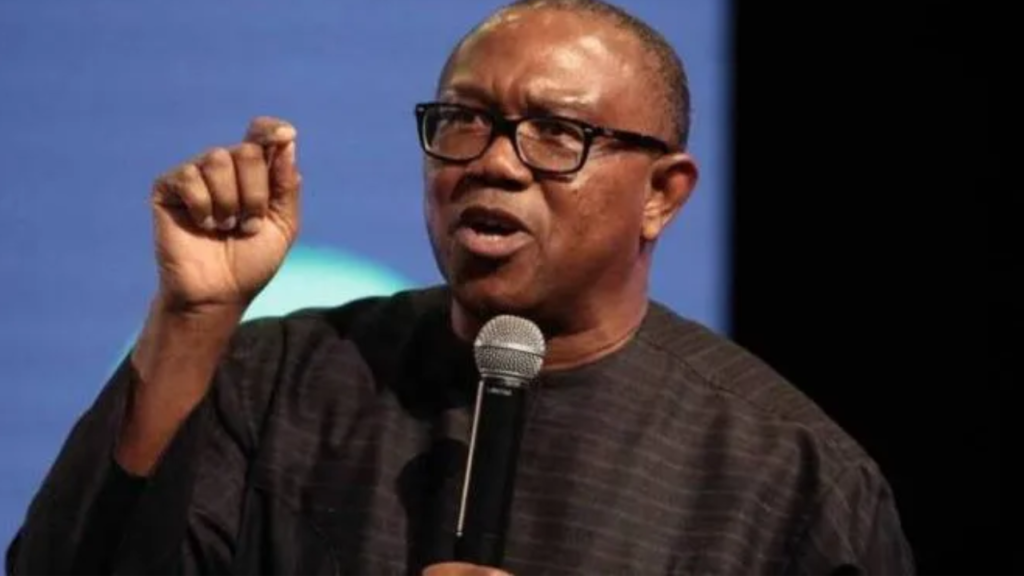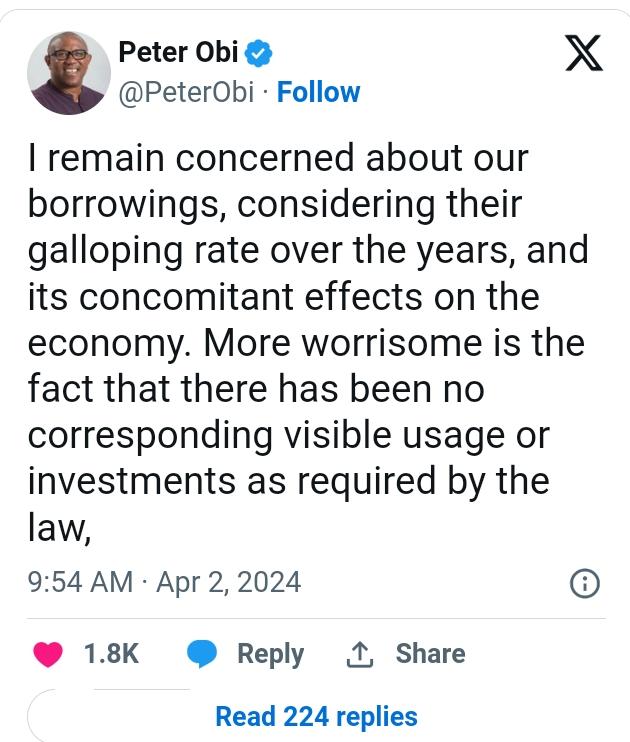
The former governor of Anambra, Obi, voiced his concerns in a series of tweets on the X platform on Tuesday on the Nigerian government’s ongoing borrowing, claiming that the country’s mounting debt was still having a detrimental impact on the economy. The Nigerian administration under President Bola Tinubu has come under fire from Peter Obi, the Labour Party’s (LP) presidential candidate for the general elections of 2023, for excessive borrowing without a track record of appropriate use.
The former governor of Anambra, Obi, voiced his concerns in a series of tweets on the X platform on Tuesday on the Nigerian government’s ongoing borrowing, claiming that the country’s mounting debt was still having a detrimental impact on the economy.

Worrisomely, he said, there had been no investment or comparable visible use of the loans as required by law to demonstrate their impact on the growth of the country.
“Given our borrowings’ galloping rate over the years and their consequent effects on the economy, I remain concerned about them,” he stated.”What is even more concerning is the absence of any commensurate, evident utilisation or investments, as mandated by the legislation, to demonstrate their influence on the country’s advancement.”
“Our debt stood at N87.9 trillion at the end of the second quarter, Q2, of 2023, which was very concerning to us, as we were at a loss as to what we did with the huge debt, especially the over N23 trillion ways and means borrowed by the last administration, which, in my opinion, would have been the end of borrowing without any visible and corresponding investment and benefit to the nation,” he said. However, what is even more concerning is the fact that, without any commensurate visible or verifiable utilisation, roughly N10 trillion was added to our debt portfolio between the end of the third quarter, Q3, and the end of the fourth quarter, Q4, of 2023, bringing our total debt to N97.3 trillion. This quarter’s borrowing amount is the largest ever.
In 2023, the entire amount of debt serviced by our country was N4.4 trillion for domestic debt and $3.5 billion, or around N4.9 trillion, for overseas debt. Currently, almost N10 trillion is spent on paying off inefficient debt.The inference is that we borrow almost N10 trillion per quarter, and we also spend roughly N10 trillion servicing our debt. The sum of them exceeds the whole budgetary allotment for the four most important sectors: infrastructure (N1.32trn), health (1.33trn), education (N2.18trn), and defence (N3.25trn).
I implore the current government to slow down the borrowing process, take stock of the results of past borrowings, and make wiser judgements for the country’s welfare.
“Our limited resources will not only be properly accounted for, but will also be wisely and productively managed in the New Nigeria of our dreams, helping to transition our country from consumption to production.”
